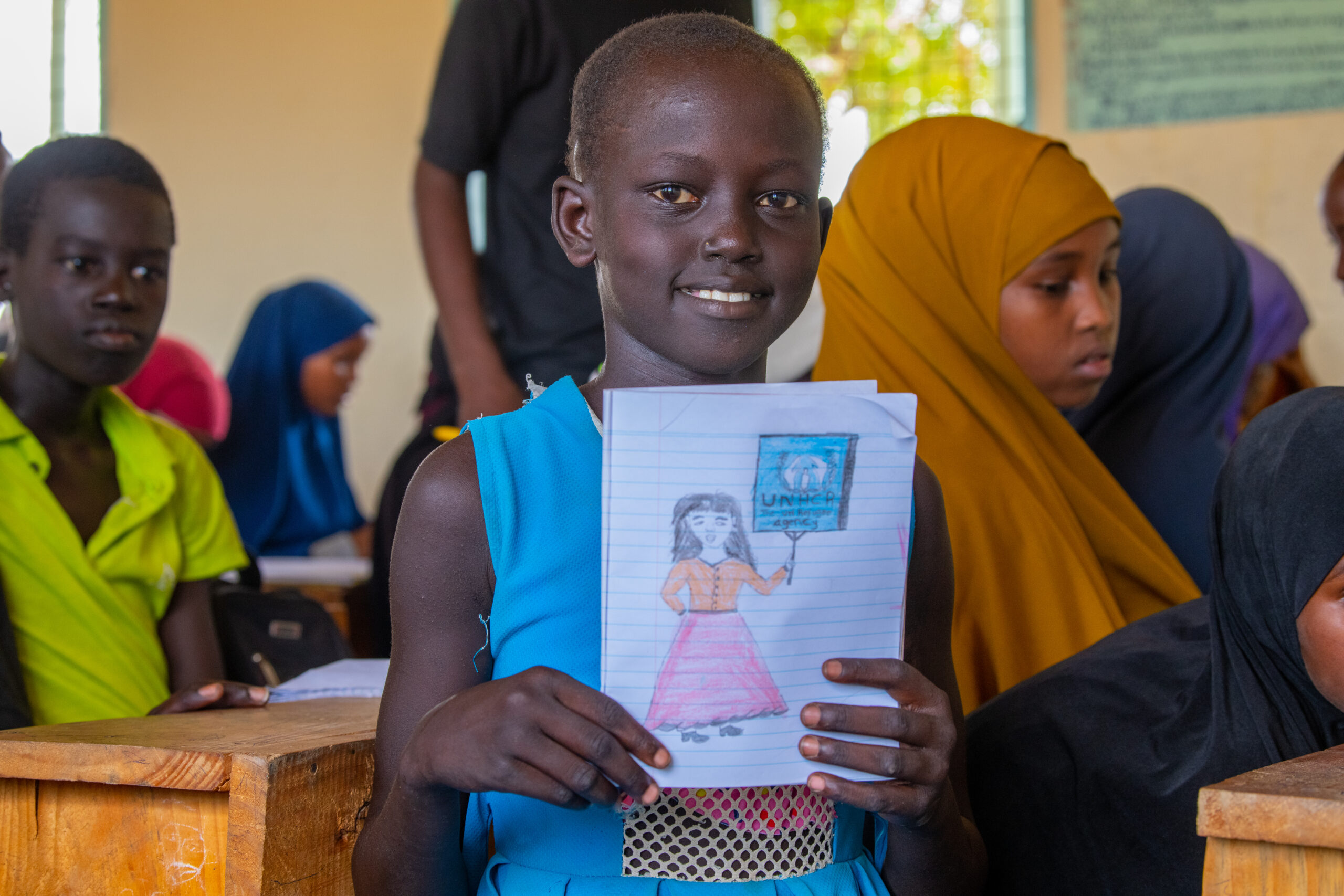
Through the support of Education Cannot Wait, UNHCR and the Education partner, Lutheran World Federation (LWF), were able to renovate classrooms to accommodate new arrivals from Somalia and South Sudan. ©UNHCR/Mohamed Aden Maalim
Nyehoth Pub Tang smiles brightly as she walks into her classroom in Dadaab’s Integrated settlement. The 12-year-old South Sudanese student is eager to share her just-finished drawing with her classmates.
“I love drawing and making crafts,” she says with a bright smile. “The environment in our school inspires me to be creative and to learn.”
Nyehoth and her classmates, most of them newly arrived refugees from Somalia and South Sudan, are enjoying learning in a transformed environment, thanks to support from the global education fund, Education Cannot Wait (ECW), which has renovated classrooms in the settlement.
“I used to struggle to concentrate in my previous school because the classrooms were old and crowded,” she adds. “But now, I am happy because of the colourful surroundings. I feel like anything is possible.”
The school headteacher, Abdifatah Hussein, echoes Nyehoth’s enthusiasm, adding that the support from ECW has not only improved the school’s physical surroundings but has also ignited a sense of hope and determination among the students.
“Seeing the smiles on my students’ faces as they walk into the renovated classrooms is priceless. It motivates me to work harder and ensure that they receive the best education possible,” he adds.
Hussein explains that before ECW’s intervention, the classrooms were dilapidated, with leaking roofs and crumbling walls. Basic amenities like proper sanitation facilities, made learning difficult as conditions were not very hygienic.
Riak Matim sitting next to Nyehoth chimes in, acknowledging the impact of having improved sanitation facilities in the school.
“We don’t worry about our hygiene now and we can focus more on our studies. It’s a relief knowing that we have access to clean and safe facilities,” he says.
Dakane Ahmed Bare, UNHCR’s Assistant Education Officer in Dadaab echoes the students’ sentiments, emphasizing the profound impact of the renovations on student engagement.
“Before, the conditions were challenging for both students and teachers. But now, with proper facilities, students like Nyehoth and Riak are eager to come to school. They take pride in their environment, and it reflects in their academic performance,” explains.
Dadaab is currently home to over 390,000 refugees supported by UNHCR, the UN Refugee Agency, among whom are over 51,000 refugee students in schools at different levels.
For Nyehoth, education means more than just academics – it is a gateway to express her creativity.
“Now that I have more space and resources to explore my passion, who knows, maybe one day I will become a famous artist,” she smiles.
Share on Facebook Share on Twitter